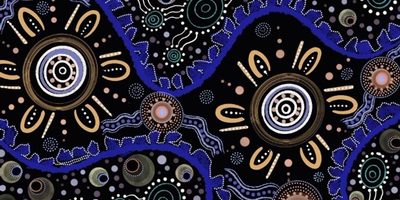
New screening tool to help Aboriginal and Torres Strait Islander people combat depression
A culturally-appropriate depression screening tool for Aboriginal and Torres Strait Islander peoples not only works, it should be rolled out across the country, according to a new study.
Researchers at The George Institute for Global Health, in partnership with key Aboriginal and Torres Strait primary care providers conducted the validation study in 10 urban, rural and remote primary health services across Australia.
The screening tool is an adapted version of the existing 9-item patient health questionnaire (PHQ-9) used across Australia and globally accepted as an effective screening method for depression. The adapted tool (aPHQ-9) contains culturally-appropriate questions asking about mood, appetite, sleep patterns, energy and concentration levels. It is hoped the adapted questionnaire will lead to improved diagnosis and treatment of depression in Aboriginal communities.
The results of the validation study were published in the Medical Journal of Australia.
Lead researcher Professor Maree Hackett, of The George Institute for Global Health, said mental health problems experienced by Aboriginal and Torres Strait Islander peoples have been overlooked, dismissed and marginalised for too long.
“This tool, which was developed in conjunction with Aboriginal communities and researchers, will help us address easily treated problems that often go undiagnosed. It will also help us to assess the scale of mental health problems in communities. Up until now, we couldn’t reliably ascertain this in a culturally appropriate way, which has remained a huge concern. We need better resources and funding for mental health across Australia, but particularly for Aboriginal and Torres Strait Islander people and within under-resourced health services. We hope this tool will be a turning point.”
The aPHQ-9 is freely available in a culturally-appropriate English version, and can be readily used by translators when working with First Nation communities where English is not the patients first language.
It is estimated up to 20 per cent of Australia’s general population with chronic disease will have a diagnosis of comorbid major depression[1].
Approximately similar proportions will meet criteria for moderate or minor depression. Mental illness and depression are also considered to be key contributors in the development of chronic disease.
Across the nation, chronic disease (cardiovascular disease, cerebrovascular disease, diabetes, chronic kidney disease and chronic obstructive pulmonary disease) accounts for 80 per cent of the life expectancy gap experienced by Aboriginal people [2].
How the tool works
The adapted tool, which was evaluated with 500 Aboriginal and Torres Strait Islander peoples, contains culturally-appropriate questions.
For example, the original (PHQ-9) questionnaire asks:
- Over the last two weeks, how often have you been bothered by any of the following problems: Little interest or pleasure in doing things?
- Feeling down, depressed or hopeless
The adapted (aPHQ-9) tool instead asks:
- Over the last two weeks have you been feeling slack, not wanted to do anything?
- Have you been feeling unhappy, depressed, really no good, that your spirit was sad?
Download: Adapted Patient Questionnaire with scoring (PDF 119 KB)
Download: Adapted Patient Questionnaire without scoring (PDF 119 KB)
Professor Alex Brown, of the South Australian Health and Medical Research Institute, who was co-investigator on the study, said the importance of using culturally appropriate language with First Nations people cannot be underestimated. “In Australia, as with many countries around the world, everything is framed around Western understandings, language and methods. Our research recognises the importance of an Aboriginal voice and giving that a privileged position in how we respond to matters of most importance to Aboriginal people themselves.
“What we found during this study was that many questions were being lost in translation. Instead of a person scoring highly for being at risk of depression, they were actually scoring themselves much lower and missing out on potential opportunities for treatment.
“It was essential that we got this right and that we took our time speaking with Aboriginal people and ascertaining how the wording needed to be changed so we can begin to tackle the burden of depression.”
Aboriginal psychologist Dr Graham Gee, of the Murdoch Children’s Research Institute, said Aboriginal communities have unacceptably high rates of suicide which need to be addressed.
“Identifying and treating depression is an important part of responding to this major challenge. It’s clear this tool is much needed.”
The new tool will be available for use at primary health centres across Australia.
[1] Mental health services report 2018, Australian Institute of Health and Welfare





